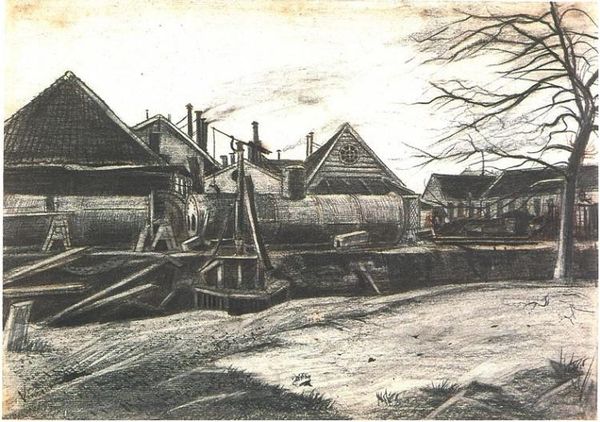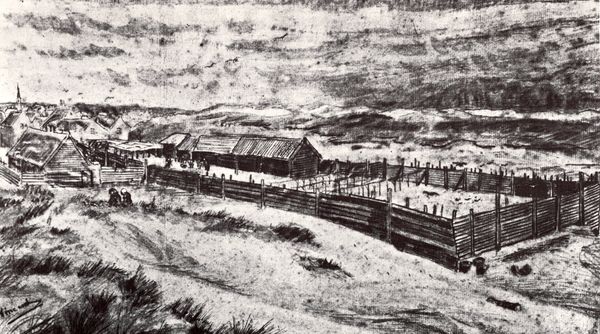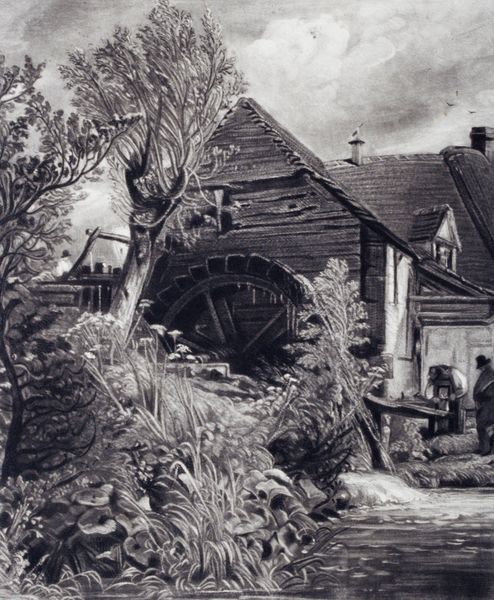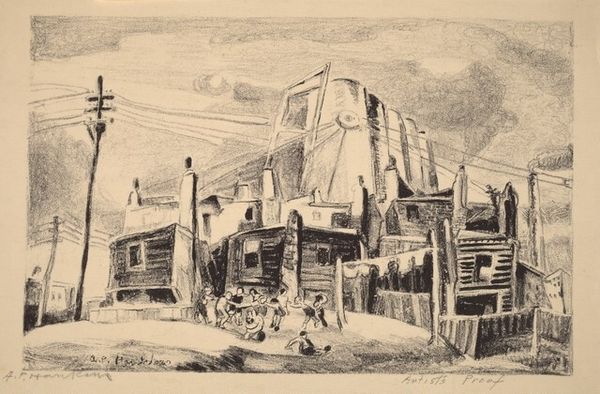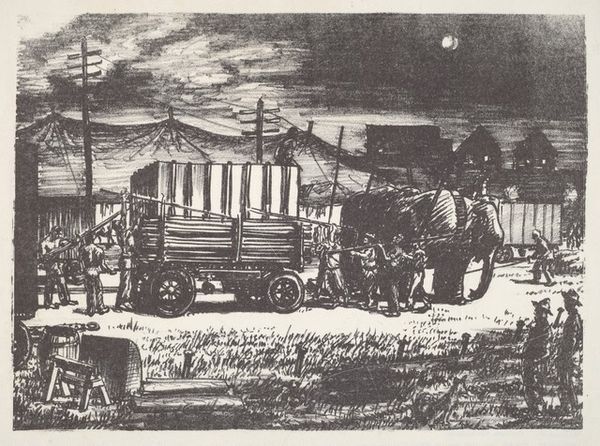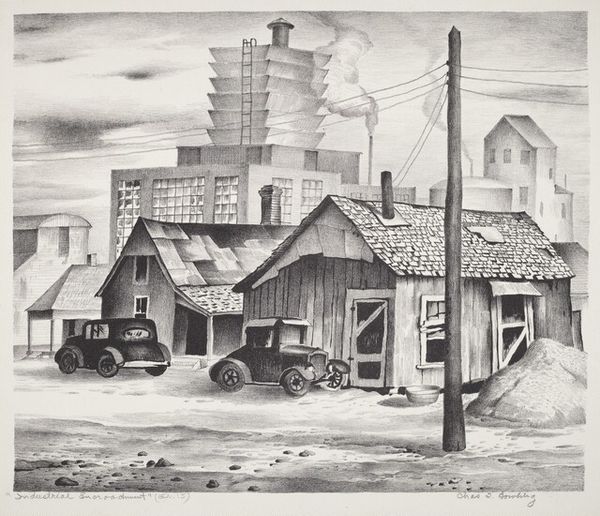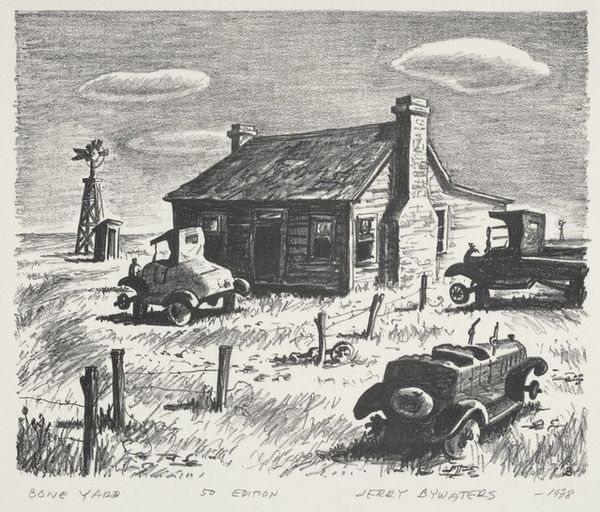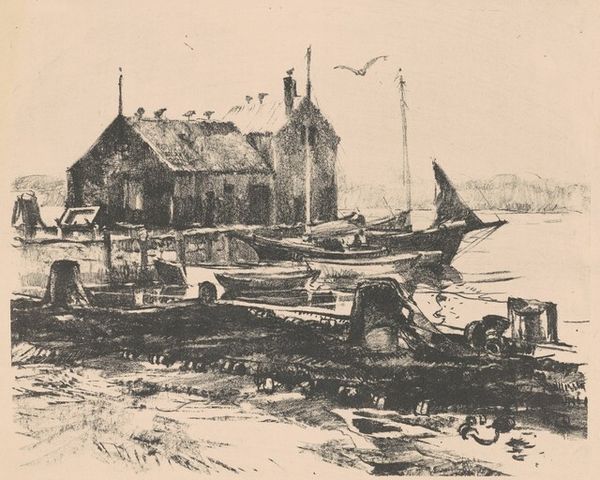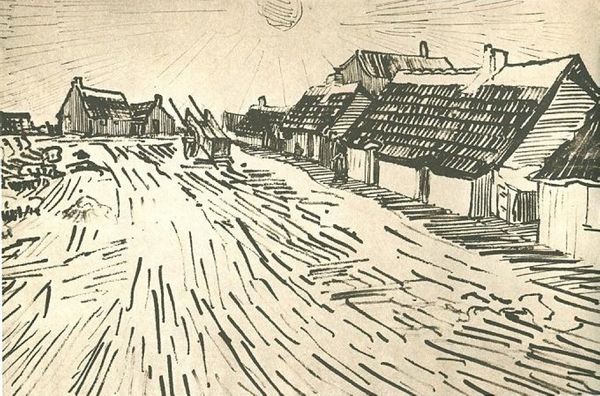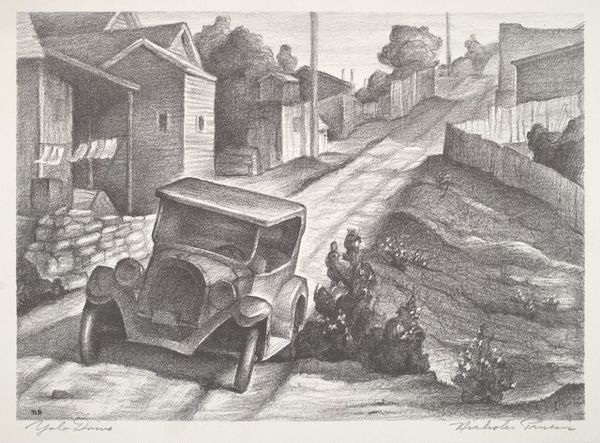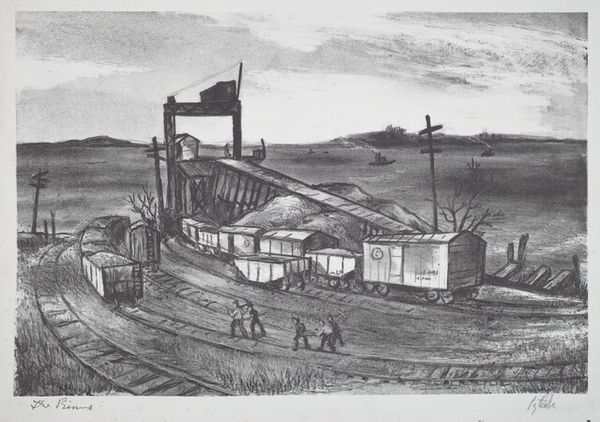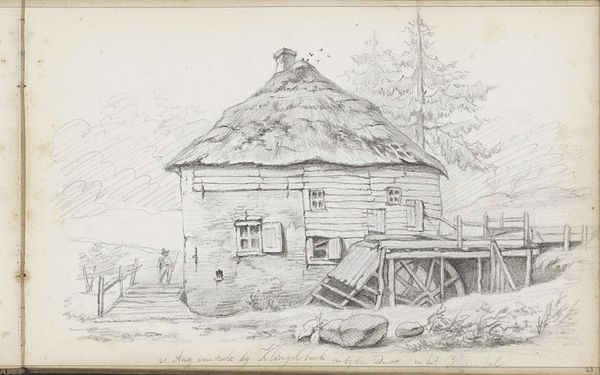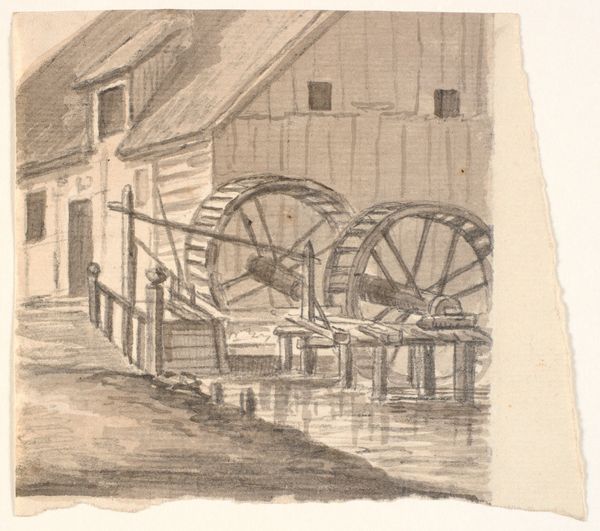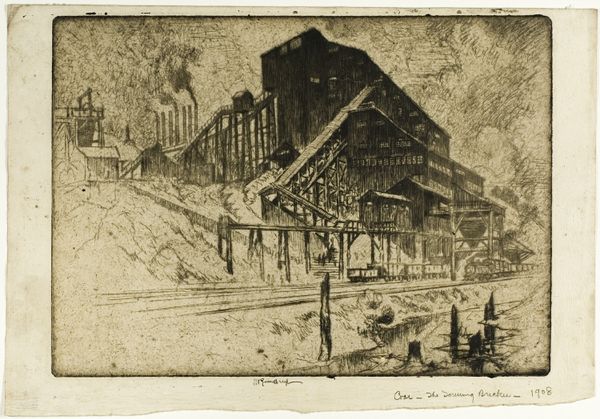
drawing, charcoal
#
drawing
#
dutch-golden-age
#
pencil sketch
#
landscape
#
house
#
charcoal drawing
#
charcoal art
#
plant
#
ashcan-school
#
charcoal
#
realism
Copyright: Public domain
This drawing of a fish-drying barn in Scheveningen was made by Vincent van Gogh. The scene depicts the hardscrabble life of the 19th-century fishing village. Van Gogh often turned his attention to the working class. Consider, for example, the woman standing in the doorway. Her gender and class, compounded with the socio-economic challenges of the time, placed her in a particularly vulnerable position. The rough textures and somber tones in the artwork reflect the harsh realities of life for these communities, where livelihoods were deeply intertwined with the unpredictable nature of the sea. By focusing on these ordinary scenes, Van Gogh elevates the dignity and value of those often overlooked by mainstream society. "I want to paint men and women with that something of the eternal which the halo used to symbolize," he once said. This drawing serves as both a historical record and a deeply personal reflection. It prompts us to contemplate the individual stories embedded within broader social landscapes.
Comments
No comments
Be the first to comment and join the conversation on the ultimate creative platform.
